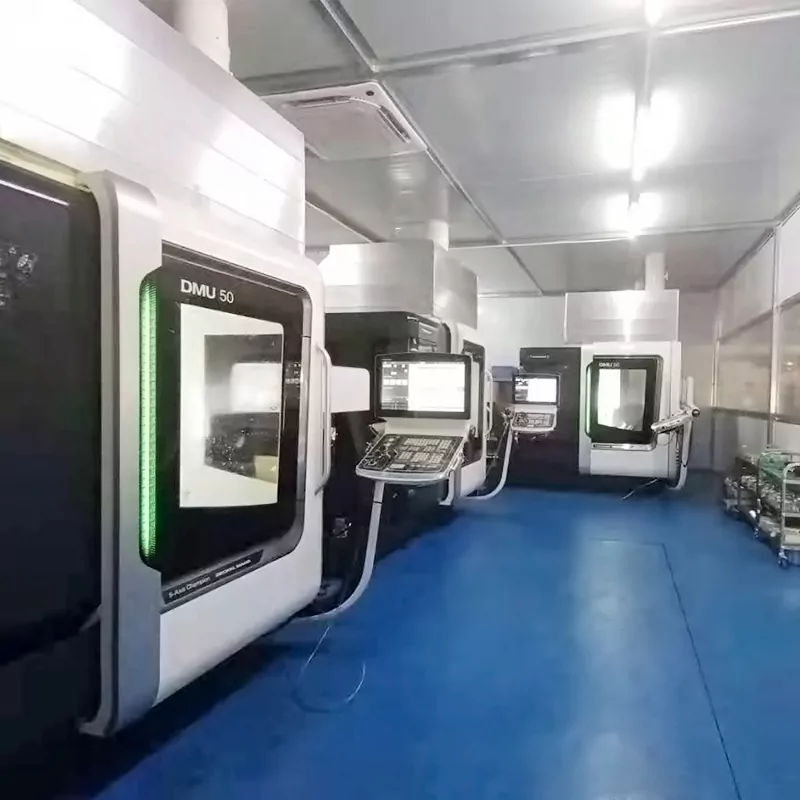Introduction: The Evolution of CNC Manufacturing
CNC (Computer Numerical Control) manufacturing has transformed the industrial landscape, revolutionizing the way products are designed and produced. With its unparalleled precision and efficiency, CNC manufacturing has become an integral part of various industries, including automotive, aerospace, electronics, and healthcare. This article delves into the intricacies of CNC manufacturing, exploring its impact on the industry and highlighting the key advancements that have propelled its growth.
The Rise of CNC Manufacturing
Before the advent of CNC manufacturing, traditional manufacturing methods relied heavily on manual labor and mechanical processes. This often resulted in inconsistencies, errors, and time-consuming production cycles. However, with the introduction of CNC machines, the industry witnessed a paradigm shift. CNC manufacturing utilizes computer-controlled systems to automate the production process, enabling precise and efficient fabrication of complex components.
Improved Precision: The Core Advantage of CNC Manufacturing
One of the most significant advantages of CNC manufacturing is its exceptional precision. CNC machines are capable of executing intricate designs with utmost accuracy, ensuring consistent quality across multiple iterations. This level of precision is achieved through the use of advanced software programs that generate precise tool paths based on digital models. The CNC machine then follows these paths, resulting in highly accurate and repeatable manufacturing processes.
For example, in the aerospace industry, CNC manufacturing plays a crucial role in the production of turbine blades. These blades require intricate geometries and tight tolerances to ensure optimal performance. CNC machines can precisely shape and finish these blades, ensuring they meet the stringent requirements of the industry. This level of precision has significantly improved the overall performance and reliability of aerospace engines.
The Efficiency Revolution: Reducing Time and Costs
In addition to precision, CNC manufacturing has also revolutionized the industry by significantly improving efficiency. Traditional manufacturing methods often involved multiple manual operations, leading to longer production cycles and increased costs. CNC machines, on the other hand, streamline the production process by automating various tasks, reducing human error, and minimizing material waste.
For instance, in the automotive industry, CNC manufacturing has enabled the production of complex car parts with unparalleled efficiency. The use of CNC machines allows for faster machining speeds, reducing the time required to produce each component. This not only increases productivity but also lowers production costs, making vehicles more affordable for consumers.
Expanding Possibilities: Complex Designs and Customization
CNC manufacturing has opened up a world of possibilities when it comes to design and customization. With the ability to precisely fabricate intricate shapes and patterns, CNC machines have empowered designers to push the boundaries of creativity. Complex designs that were once deemed impossible or impractical can now be brought to life with ease.
Furthermore, CNC manufacturing enables customization on a mass scale. By leveraging computer-controlled systems, manufacturers can easily adapt their production processes to accommodate individual customer requirements. This level of flexibility has transformed industries such as healthcare, where personalized medical devices and implants can be manufactured with precision and efficiency.
The Future of CNC Manufacturing
As technology continues to advance, CNC manufacturing is poised to further revolutionize the industry. The integration of artificial intelligence and machine learning algorithms into CNC machines holds the potential to enhance productivity, optimize tool paths, and improve overall efficiency. Additionally, the emergence of additive manufacturing techniques, such as 3D printing, in conjunction with CNC machining, opens up new avenues for innovation and design possibilities.
Conclusion: The Power of Precision and Efficiency
In conclusion, cnc manufacturing has undoubtedly revolutionized the industry through its precision and efficiency. From improved quality and reduced production times to expanded design possibilities and customization, CNC machines have become indispensable tools in modern manufacturing. As the industry continues to evolve, CNC manufacturing will play a pivotal role in shaping the future of production, driving innovation, and meeting the ever-growing demands of global markets.
